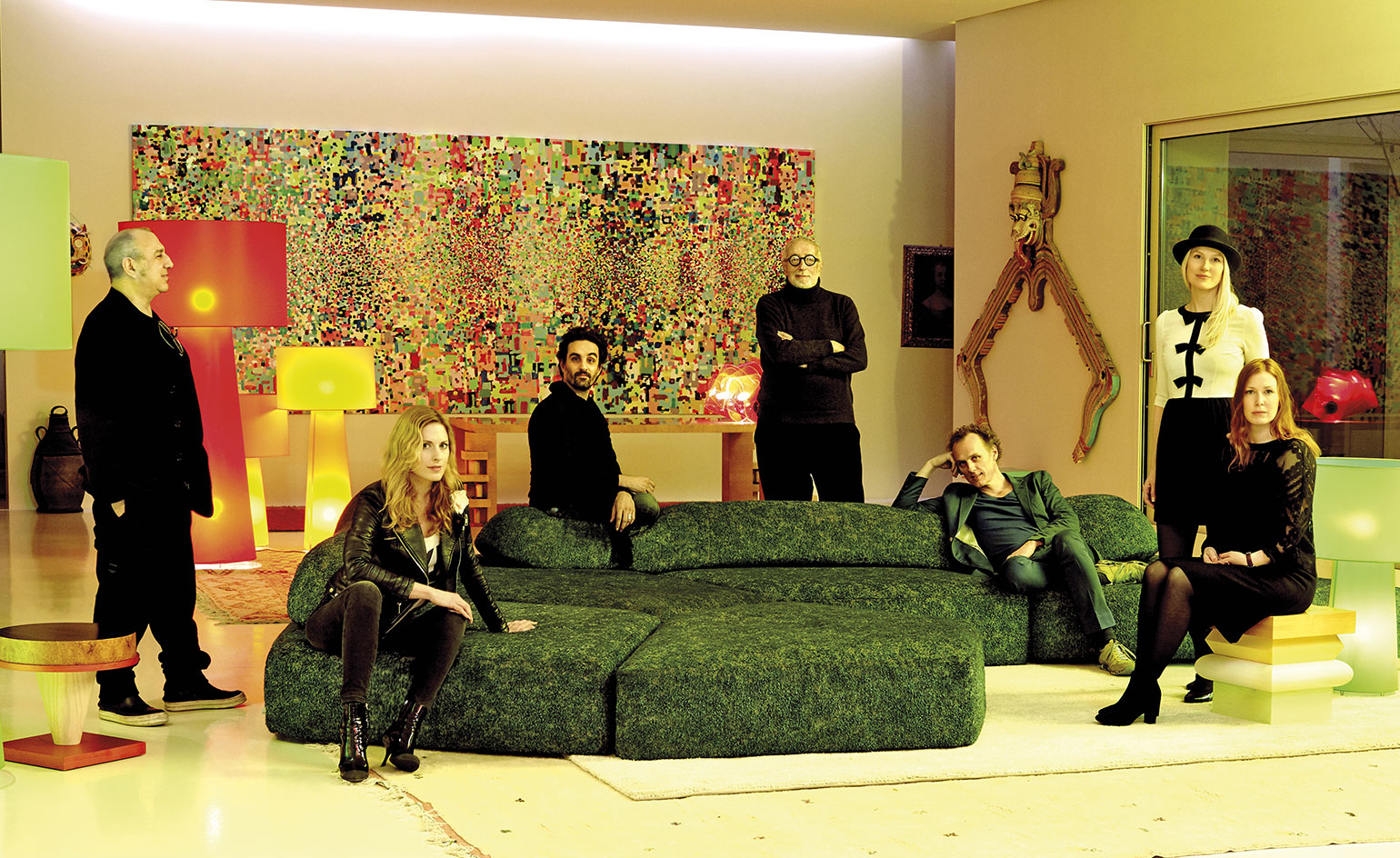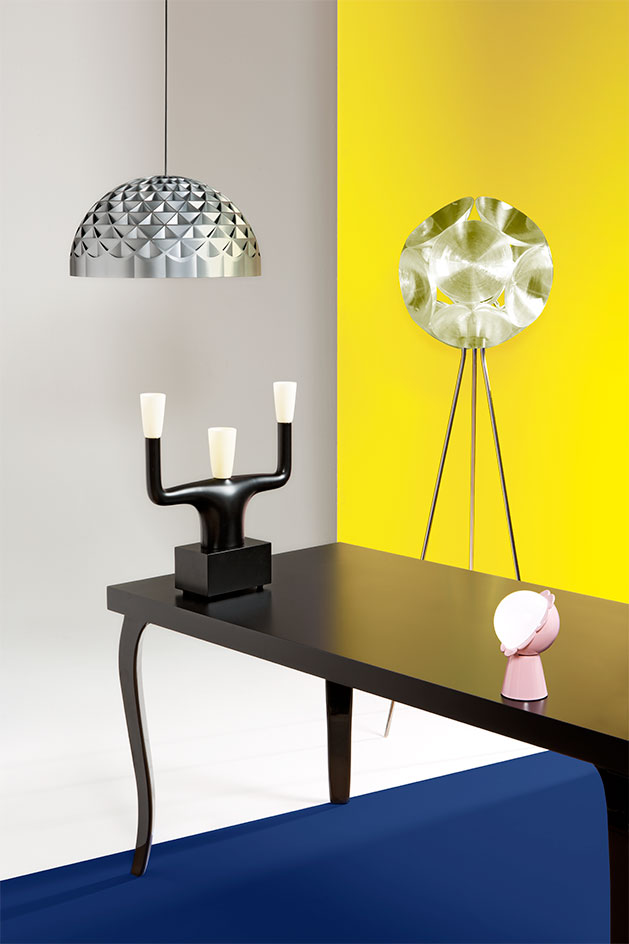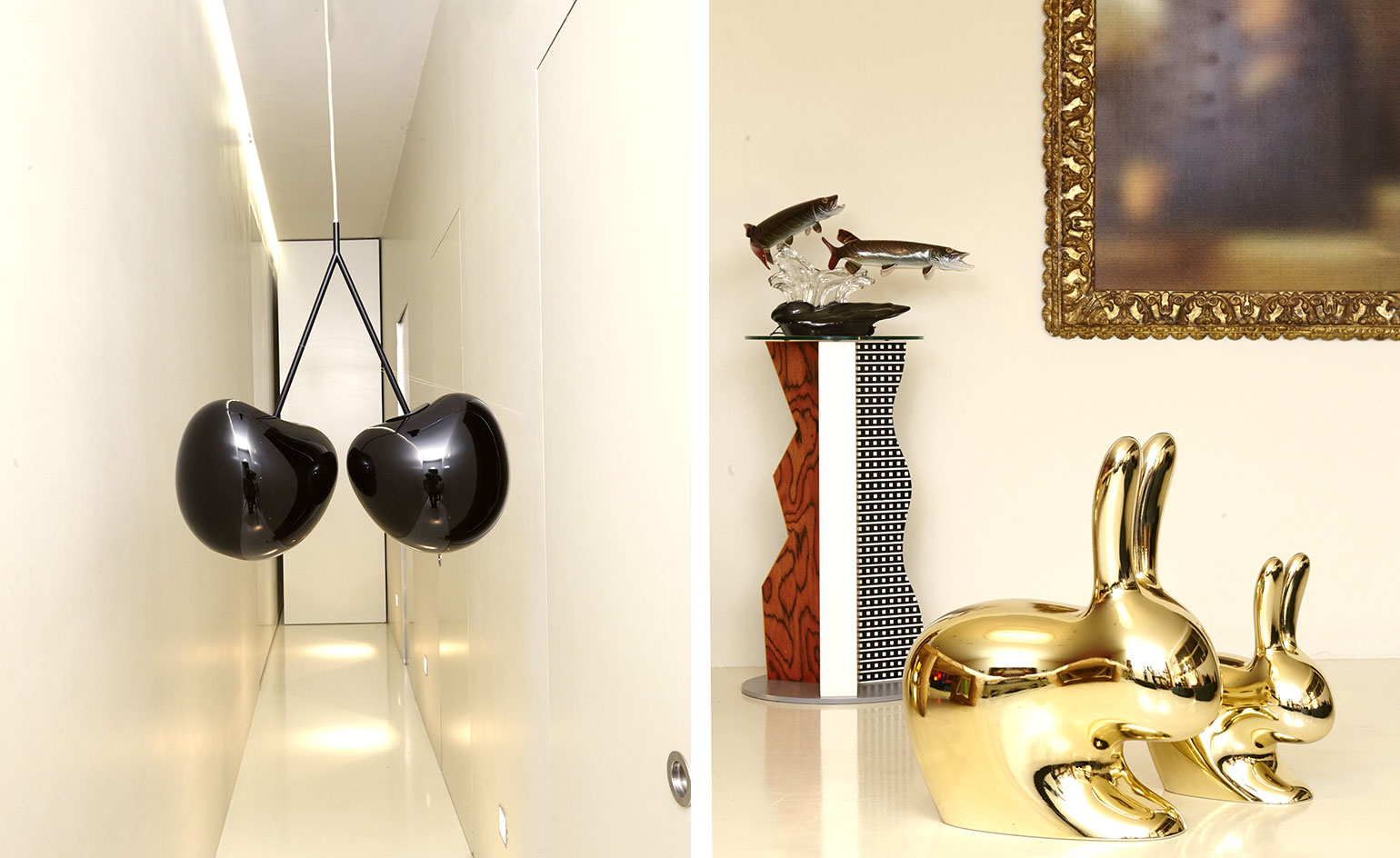Breaking the mould: Stefano Giovannoni creates plastic furniture collection

Receive our daily digest of inspiration, escapism and design stories from around the world direct to your inbox.
You are now subscribed
Your newsletter sign-up was successful
Want to add more newsletters?

Daily (Mon-Sun)
Daily Digest
Sign up for global news and reviews, a Wallpaper* take on architecture, design, art & culture, fashion & beauty, travel, tech, watches & jewellery and more.

Monthly, coming soon
The Rundown
A design-minded take on the world of style from Wallpaper* fashion features editor Jack Moss, from global runway shows to insider news and emerging trends.

Monthly, coming soon
The Design File
A closer look at the people and places shaping design, from inspiring interiors to exceptional products, in an expert edit by Wallpaper* global design director Hugo Macdonald.
Stefano Giovannoni has been a key figure of Italian design since the 1980s. After graduating from Florence University, he founded design studio King-Kong with architect Guido Venturini, and helped create a series of now iconic household objects. Best known are the playful pieces he produced for Alessi, first with King-Kong and then as a solo designer, creating cartoon-like characters who performed a variety of functions, from toothpick holders to salt and pepper shakers, egg cups and fruit bowls.
In 2001, Alberto Alessi called Giovannoni ‘the champion of the super and popular’. And although his works include more quietly purposeful pieces (from door handles to seating), it is this series of toy-like domestic tools that continue to charm and captivate. ‘I love to create emotional objects that have a strong language, giving them the power to communicate to the largest possible audience in a very smart way,’ says Giovannoni.
He is now looking to reach that audience, and return to his roots in industrial design, with a new collection debuting at Milan’s Salone del Mobile in April. ‘For a long time, I had wanted to direct my creative experiences into a venture of my own,’ he explains. ‘I believe that design companies need to rethink their strategies entirely. I have always been keen on the idea of skipping the compromises typical of a company’s way of operating so that an object could directly reach the consumer.’
In September last year, Giovannoni partnered with a Hong Kong-based investor and started Qeeboo, a brand that offers plastic furniture at affordable prices. Exclusively sold online – on the company’s own website and international web platforms – Qeeboo’s debut collection will comprise 25 injection-moulded pieces by a highly credentialed collection of designers.
The group includes Slovenian designer Nika Zupanc – whose playfully feminine creations usually appear only as super-precious editions – making a first move into accessible industrial pieces. The Italian architect Andrea Branzi’s conceptual organic forms have been reimagined with a rotational-moulding process in mind. Dutch designer Richard Hutten, meanwhile, has looked at mathematical formulae to produce different lamp designs that are both beautifully formed and scientifically correct. Swedish design studio Front continues its exploration of curved, intersecting lines, coming up with the intricate ‘Loop’ chair. And Gabriele Chiave, creative director at Marcel Wanders, contributed a capsule collection, merging a colourful geometric print with updated classic silhouettes. Giovannoni has designed some of the pieces himself and, true to form, has created function-first domestic seating as well as more figurative fancies.
Even if the designers’ backgrounds and contributions to the collection are very different, there is a common creative thread to the Qeeboo collection. The group was chosen because of long-term friendships and mutual admiration, but the common denominator, Giovannoni explains, was ‘their ability to define their objects through a narrative poetry based on iconic shapes that could communicate emotional values’.
The pieces are the result of an open brief (‘We could do what we wanted, as long as it was plastic,’ says Hutten), and while they are evidence of Giovannoni’s playful vision, they also reflect each designer’s style.
Of all the creations in the collection, though, Zupanc’s perhaps best represent Giovannoni’s mission with Qeeboo. Alongside a new daisy-shaped lamp, three existing Zupanc designs have been reimagined: her ‘X’ chair for Moooi, originally upholstered in a rose-print fabric, is back in new block-coloured options; while her ‘Ribbon’ chair – a one-off piece she designed for a Dior installation in 2013 – gets a plastic makeover in three different shades. Finally, her cherry lamp from the same year has also been taken on by Giovannoni. Originally combining hand-blown glass and brass, the lamp is now available in a new production-line version. ‘For me, it was completely new to think in this way – to bring to life iconic, simple pieces, stripped of their high prices, but still maintaining a high quality,’ explains Zupanc.
‘It’s an adventure the design world probably needs,’ adds Branzi. Even though his creations are normally more organic and research-led, the architect admits he enjoyed the challenge of working on these new plastic pieces. ‘There is a bit of stagnation; design is always very elegant, very functional, a bit cold,’ he adds. ‘This project seems to steer clear of these concepts.’
An innovative model that is trying something new in terms of manufacturing and distribution, Giovannoni’s venture is an attempt to realise a dream deferred. ‘A light company structure and being able to skip the [traditional] distribution process make it possible to achieve the democratic ideal that has always been the aim of industrial design,’ says Giovannoni. The company will outsource logistics and warehousing, and focus on design and production. With an investment in excess of €1m, Giovannoni and his partners were able to buy new-generation machinery, which includes injection-moulding and rotational-moulding equipment and tools to create more detailed finishes. Products will be manufactured in Italy and China, taking advantage of different production skills.
‘Original ideas are often the problem with affordable design,’ says Hutten, noting that with this new system, Giovannoni aims to revolutionise the concept of low-cost design (a chair will retail at approximately €50).
Giovannoni is bringing to the project both a careful managerial strategy and a creative director’s playful orchestration. At its core is a romantic view of design that is both democratic and unconventional. ‘For me, this is the purpose of industrial design,’ he explains. ‘Pop objects, not bourgeois, which can convey creative dreams and reach people’s homes in a creative way.’
As originally featured in the April 2016 issue of Wallpaper* (W*206)

Pictured clockwise from top left: ‘Superform’ lamp, ‘Pitagora’ lamp, both by Richard Hutten. ‘Daisy’ lamp, by Nika Zupanc. ‘BB’ table, by Marcel Wanders. ‘Guru’ lamp, by Andrea Branzi.

Pictured left: ‘Black Cherry’ lamp, by Nika Zupanc. Pictured right: 'Rabbit' chairs, by Stefano Giovannoni.
INFORMATION
For more information, visit Stefano Giovannoni’s website
Receive our daily digest of inspiration, escapism and design stories from around the world direct to your inbox.
Rosa Bertoli was born in Udine, Italy, and now lives in London. Since 2014, she has been the Design Editor of Wallpaper*, where she oversees design content for the print and online editions, as well as special editorial projects. Through her role at Wallpaper*, she has written extensively about all areas of design. Rosa has been speaker and moderator for various design talks and conferences including London Craft Week, Maison & Objet, The Italian Cultural Institute (London), Clippings, Zaha Hadid Design, Kartell and Frieze Art Fair. Rosa has been on judging panels for the Chart Architecture Award, the Dutch Design Awards and the DesignGuild Marks. She has written for numerous English and Italian language publications, and worked as a content and communication consultant for fashion and design brands.